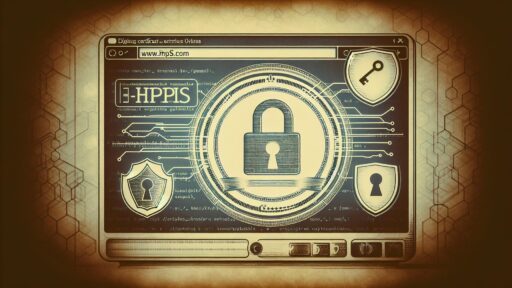In today’s fast-paced world, ensuring the authenticity of important documents is crucial. Notarization, an age-old process, plays a vital role in this by verifying the identity of signatories and adding a layer of trust. Whether it’s a legal contract, a will, or a power of attorney, getting documents notarized provides peace of mind and legal assurance.
Navigating the notarization process might seem daunting to some, but it’s simpler than one might think. With the rise of mobile and online notary services, it’s now easier than ever to have documents authenticated without leaving the comfort of one’s home. This convenience is reshaping how individuals and businesses handle essential paperwork.
Understanding the nuances of notarization can save time and prevent potential legal issues. By exploring the benefits and methods of getting documents notarized, individuals can make informed decisions and ensure their documents are both valid and secure.
Understanding Notarization
Notarization involves a certified notary public acting as an impartial witness to document signings. This process confirms the identity of signatories by verifying government-issued identification and ensures that all parties are willingly participating without duress. Notaries use their seals to authenticate documents, adding a layer of legal protection.
Notaries serve as gatekeepers for various types of documents. Examples include affidavits, powers of attorney, and real estate deeds. Each document type may require specific notarization standards. For instance, real estate transactions often demand in-person signings in some jurisdictions.
Adhering to notarization regulations helps maintain the document’s validity. Different regions may impose distinct legal requirements for notarial acts, sometimes necessitating specialized training or licensing for notaries. By aligning with these requirements, notarization reinforces a document’s legal credibility.
Digital notarization has gained popularity, especially for long-distance transactions. Online notary services enable parties in disparate locations to notarize documents remotely, increasing convenience while maintaining document security. This innovation allows for seamless integration into various business and personal transactions.
Understanding the nuances of notarization helps individuals prepare necessary documents efficiently. Whether engaged in property sales or estate planning, having a comprehensive knowledge of the process aids in streamlining legal dealings, guaranteeing smoother transaction outcomes.
Importance Of Documents Notarized
Notarized documents play a crucial role in maintaining the integrity and legality of many transactions. They provide a trusted verification method that ensures authenticity and voluntary commitment.
Legal Significance
Notarization elevates the legal standing of documents. Courts recognize notarized documents as reliable evidence, increasing their weight in legal proceedings. This process certifies that the document is executed by the rightful individuals, reducing disputes over authenticity. In real estate, for example, notarized deeds ensure the rightful transfer of property, adhering to jurisdictional requirements.
Preventing Fraud
By verifying identities and overseeing signings, notarization actively combats fraud. The presence of a notary public discourages impersonation and coercion, ensuring parties are who they claim to be. This is especially vital for financial agreements and wills, where fraudulent activities could lead to serious legal ramifications. The notary’s impartiality and documentation prevent future alterations or disputes.
Types Of Documents That Need Notarization
Notarization ensures the authenticity and legality of various important documents. It acts as a safeguard, adding a layer of trust and legitimacy to transactions.
Real Estate Documents
Real estate documents often require notarization to prevent fraud. These include deeds, mortgages, and title transfers. Notarization helps confirm the authenticity of signatories and ensure the voluntary nature of agreements. This process protects parties involved in property transactions from disputes over property ownership and legitimacy.
Legal Affidavits
Legal affidavits are sworn statements used in court proceedings. Notarization of affidavits verifies the identity of the affiant (the individual making the statement) and ensures the statement’s authenticity. This process adds credibility, making affidavits reliable pieces of evidence. Examples include affidavits of support, identity theft affidavits, and residency affidavits.
Financial Agreements
Financial agreements often require notarization, particularly those involving large sums or legal commitments. Such documents include loan agreements, trust documents, and power of attorney. Notarization ensures all parties understand and willingly accept the terms, reducing the risk of disputes and financial misconduct. Notaries ensure these agreements are properly executed and legally binding.
How To Get Documents Notarized
Obtaining document notarization ensures legal validity and authenticity. There are two common methods for notarizing documents: in-person and online.
In-person Notarization
For in-person notarization, individuals visit a notary public with their documents. The notary verifies the identity of each signatory, often using government-issued photo IDs such as driver’s licenses or passports. They ensure that all parties are signing willingly and understand the document’s contents. After completing these checks, the notary affixes an official seal or stamp to the document, confirming its authenticity. This traditional method remains suitable for individuals who prefer face-to-face interaction or require notarization for documents not eligible for online notarization.
Online Notarization
Online notarization offers convenience and is especially beneficial for those unable to meet a notary in person. This process uses secure digital platforms to verify identities and facilitate document signing. Users upload their documents to an approved online notarization service, engage in a video conference with the notary, and use electronic signatures. The notary then applies a digital seal. Accepted widely across various states, online notarization streamlines the process while maintaining security standards, accommodating long-distance notarization needs effectively.
Common Challenges And Solutions
Engaging in the notarization process can present challenges, but understanding common issues and their solutions can streamline document authentication.
Identifying Authentic Notaries
Locating a legitimate notary public is crucial. It’s advisable to verify their credentials through official state notary directories or authorized platforms. These sources typically provide up-to-date lists of active notaries and their commission details. Additionally, confirm the notary’s status and ability to notarize specific document types by checking their certification and any specialization they might hold.
Dealing With Rejections
Documents sometimes face rejection due to errors or missing information. To mitigate this, carefully review the document for completeness and ensure all required signatures are present. Consider utilizing a checklist that includes verifying identification documents and confirming that the notary’s seal and signature are applied correctly. Resolving these issues before submission reduces the risk of rejection and expedites processing times.
Discover the Power of BlueNotary:
Integrate your Business, Title Company, or Law Firm to Satisfy your Customers and Decrease Turnaround
Get a document Notarized/Sign-up
Join the Free Notary Training Facebook Group
Conclusion
Understanding the notarization process is crucial for anyone dealing with important documents. By ensuring authenticity and providing legal assurance, notarization plays a vital role in protecting individuals and businesses from potential legal issues. The convenience of mobile and online notary services has made the process more accessible than ever, allowing for secure and efficient document handling. Notarized documents offer enhanced legal standing and help prevent fraud, making them indispensable in real estate, financial agreements, and legal affidavits. By familiarizing themselves with the notarization process and its requirements, individuals can ensure smoother transactions and safeguard their interests effectively.
Frequently Asked Questions
What is notarization, and why is it important?
Notarization is the process of verifying the authenticity of important documents by a certified notary public, who acts as an impartial witness. Its importance lies in ensuring the identity of signatories and providing legal assurance for documents like contracts and wills. Notarized documents are recognized as reliable evidence in courts, helping prevent disputes and fraud, particularly in real estate transactions and financial agreements.
What types of documents typically require notarization?
Common documents that require notarization include real estate deeds, legal affidavits, financial agreements, and wills. These documents need notarization to ensure authenticity, prevent fraud, and provide legal protection for the parties involved, making them essential for significant transactions and legal proceedings.
How has digital notarization impacted the notarization process?
Digital notarization has made the process more convenient, especially for long-distance transactions. It uses secure digital platforms for identity verification and document signing via video conferencing and electronic signatures, maintaining security standards while allowing for easier access to notarial services without the need for physical presence.
What challenges might one face in the notarization process?
Challenges may include identifying authentic notaries and overcoming document rejections. To mitigate these issues, verify notary credentials through official state directories and ensure all necessary signatures and information are present on documents. Being proactive in addressing these challenges assists in a smoother notarization experience.
How can I get my documents notarized online?
To notarize documents online, use a secure digital platform that connects you with a licensed notary. The process involves identity verification through government-issued photo ID and digital signing via video conferencing. This method offers convenience and security, particularly for individuals unable to meet a notary in person.








